Gillnetting versus a LNG Terminal
Columbia River Basin
|
NEW ESRI StoryMaps: What's On Our Shelves & NWNL Song Library & No Water No Life ESRI |
Columbia River Basin
Jim Fisher
Fisherman
Alison M. Jones
NWNL Director and Photographer
Bonnie Muench
NWNL Photographer
Ted Messing
NWNL Guest, Columbia River Keeper
All images © Alison M. Jones, unless otherwise noted. All rights reserved.
Gillnetting is an ancient fishing method still used by a few commercial and artisanal fishermen in riverine and estuary areas, as well as oceans. Used since ancient times, gill nets are vertical panels of nettingset on a line to capture passing fish. Gillnetting mesh and net sizes for salmon in the Columbia River Estuary are closely regulated to minimize non-targeted by-catch.
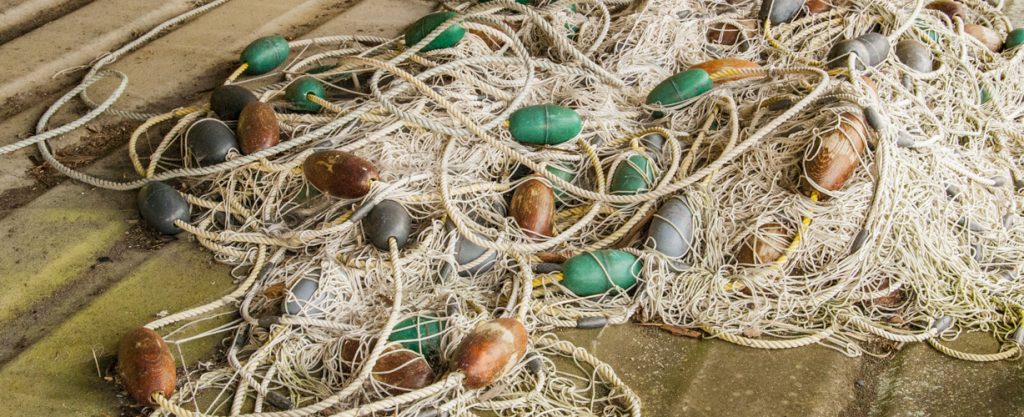
NWNL Hello Jim. How appropriate to meet a fisherman here on the Columbia whose last name is Fisher! How did that happen?
JIM FISHER Well, I came out of a diving business; but now I fish at a controversial fishery, Drift Gill Net. I’m a Columbia River gillnetter – not one of the high-seas, bad-guy gillnetters. I’ve fished albacore, shark and swordfish. At one point I dived for abalone in California. But there’s no commercial fishery left there for abalone. There may be one small abalone fishery in Oregon, but that’s experimental.
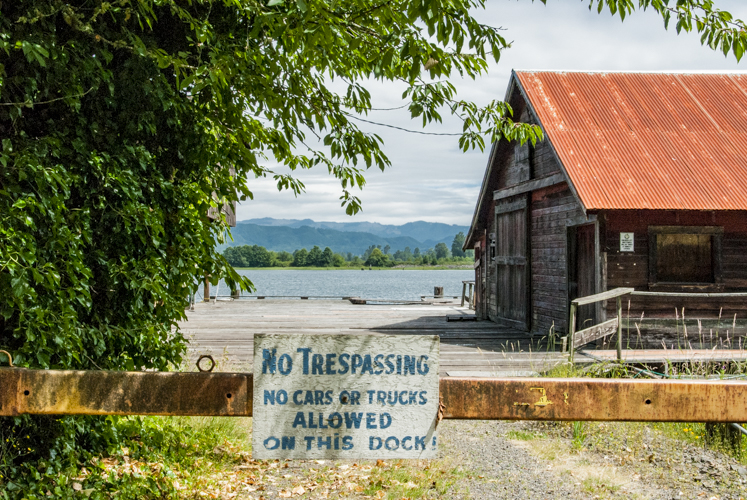
NWNL You live a half a mile from here in a little village called Clifton, where you are part of a cooperative fishing market. How would you describe that cooperative?
JIM FISHER Yes, at Clifton’s Corporation, Brian, Clarence, Jack, and I are pretty much the four fishermen left who have lived here most of our lives and fished with river gillnets for salmon. I’ve lived here for the best part of three years, after coming up from San Francisco and Santa Barbara, where I was a student and then a career fisherman.
My wife and her four siblings grew up in Clifton in the house that her father grew up in. But while I was still fishing there, we didn’t spend a lot of time here. It’s only been the last few years that we’ve had an opportunity to fix the house up and spend time here. Her father’s house now is two doors down from ours.
Gillnetting across a century
NWNL How long has there been an active fishing establishment here? Isn’t it at least 100 years?
JIM FISHER I think it goes back to 1880 – at least the 1900’s. There were a lot of people who came here who didn’t speak English: a lot of Yugoslavs, Greeks and people from that part of Europe and a couple of Italians. There were also Finnish, Norwegian and Swedish people.
NWNL Didn’t Italian fishermen, who came up here from the Sacramento River to establish this community, bring up that bow-picker design for the gillnet boats?
JIM FISHER Well, that probably came from Italy before it got to Sacramento. You know, there were any number of camps like this: Altoona WA and all those places. I think this camp is the last one like this that is in this kind of condition. Our four houses that are on the water and the one off the water are probably the best remaining examples; and we don’t want to make them a park.
NWNL Is gillnetting now a dying practice? And if so, will this historic little village be able to survive?
JIM FISHER I guess we’re the remaining dinosaurs that make their living off natural resources. There are probably 500 permits. That figure could be incorrect, but a significant number of permits are left. There are some younger people buying them and getting into the fishery, but as with everything, there’s usually group conflict. Oregon has become more involved in tourism, sport fishing and recreational opportunities which have expanded because people can afford them. So now there’s a conflict between people enjoying different uses for the river.
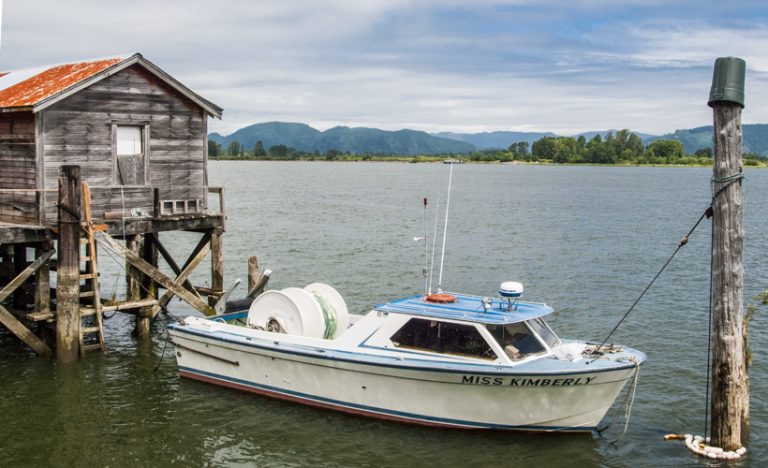
NWNL I understand that gillnet fishermen need drifting licenses to keep them from being called “bad-guy gillnetters” who are accused of pulling in other species from the river or ocean as “bycatch.”
JIM FISHER Oh, yeah, gillnets are thoroughly regulated.
NWNL So, if the proposed Bradwood LNG terminal goes in nearby, what will happen to gill-netter drifting for fish in these waters? Will the LNG terminal affect their fishing?
JIM FISHER Oh, yes. The LNG plant would affect the way the river is used from one end to the other, from the Columbia River Estuary up to Portland and beyond. It would be a large construction project, involving changes to both river and land. To build such an immense plant, they’d have to dig a turning basin – but the river’s naturally very narrow there. So it would be very disruptive.
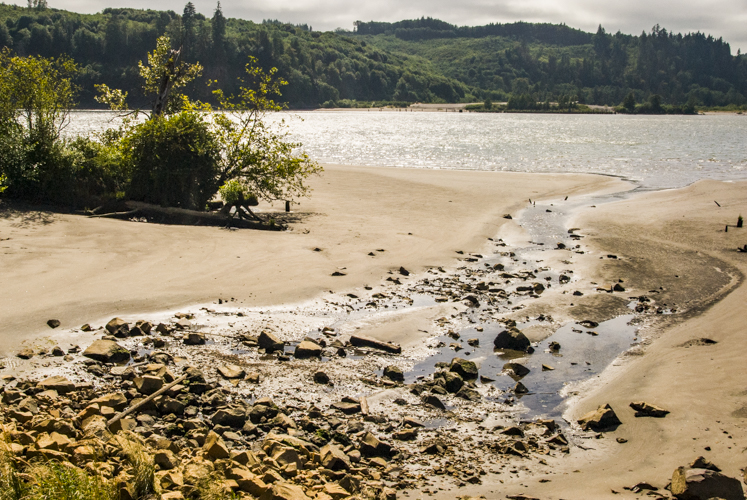
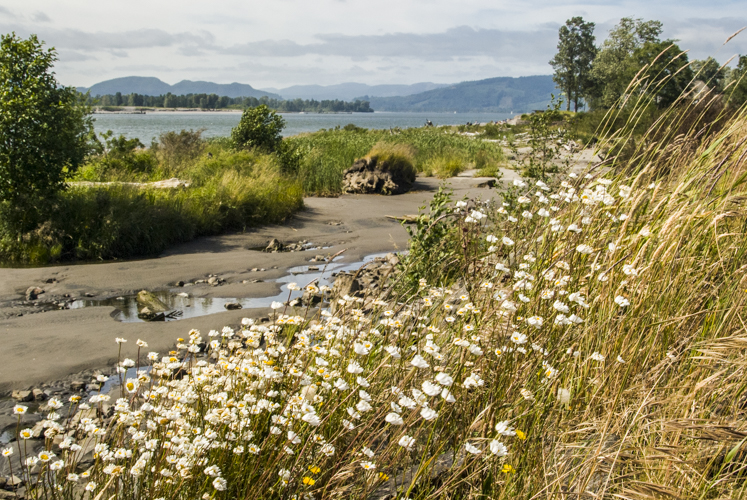
Proposed site for Bradwood LNG plant seen from Puget Island.
NWNL Where would the 100 to 200 fishermen who are out there today go to keep fishing if the LNG plant ends fishing here?
JIM FISHER In this area, very few of those who have drift rights actually fish in the Clifton Channel. More folks fish up towards Cathlamet, Washington. But the question is what the impact of an LNG terminal would do to fishing on the river as a whole. It could also impact recreation, as well as commercial fishing interests. You know, we catch salmon for people to eat. Others catch salmon as recreation, rather than maybe watching TV.
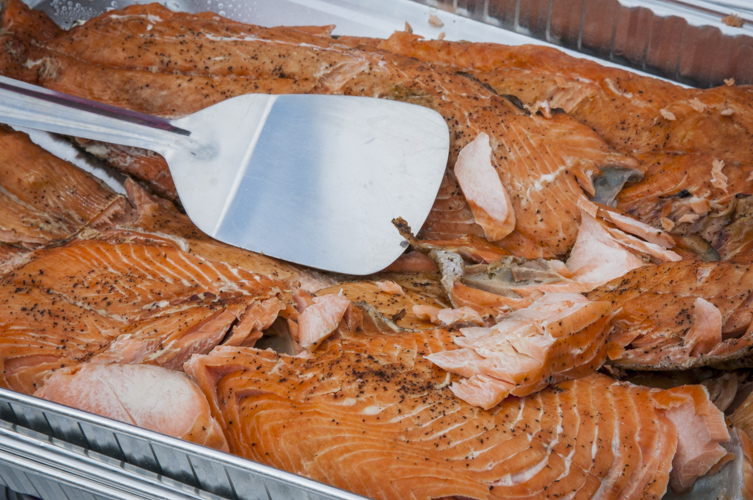
NWNL Are there any positive effects of the LNG terminal and plant processing facility?
JIM FISHER Our family doesn’t see anything positive that would come out of LNG for this area. Any positives are beyond my ability to fathom. They’re going to produce a minimal amount of gas; it’s going to be shipped in; and then it’s going to be piped to California, or the highest bidder. Regarding the local economy, they say that there are going to be sixty $50,000-a-year jobs. But having worked in the oil and gas business, and knowing that most of these things are highly automated, I find it difficult to believe that they’re going to have a full-time crew of 60 people there. I would say more like 20 to 30 would be realistic. I can’t think of any positives other than a LNG terminal might be better than an alternative development.
This will probably get edited, but truthfully – I’d rather see the LNG plant than a state park. State parks, which by their very nature bring in a lot of transients who stay, would definitely be disruptive. There’d be litter problems and there’d be vandalism. I hate to say it, because I’m not an elitist, but I’d prefer to have this LNG project with as few people as possible.
NWNL This is a piece of heaven. Is there a current proposal for a state park here?
JIM FISHER They are always an option. But I don’t think the state’s got the money. The fellow that bought that land a long time ago has a significant investment there. If the state could somehow find the money and is desirous of making it a park…., well, yeah, it’s an option.
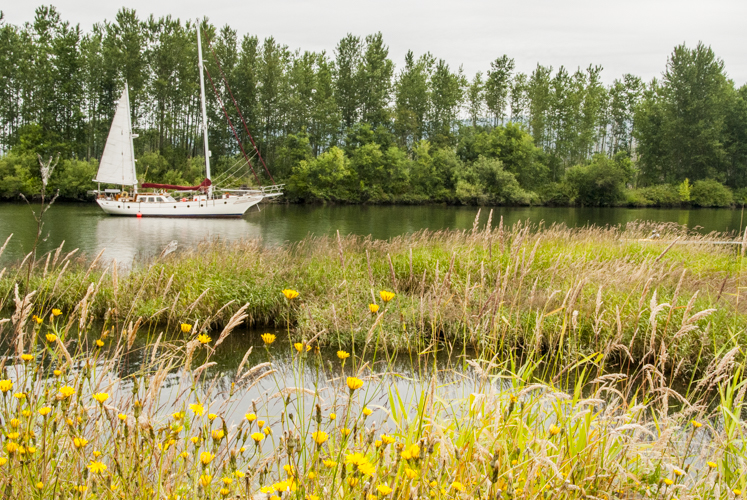
NWNL We interviewed a dozen people out on Puget Island who are actively protesting the LNG facility. Are there any people in this area of Clifton and Westport who are in favor of the LNG plant?
JIM FISHER Oh, I’m sure there are.
NWNL Is it because they envision the promise of jobs and a boost to the economy?
JIM FISHER Yeah, but the “red herring” of jobs and development doesn’t wash with the changes that they’re going to make here. You’ll never see a government that’s going to turn down tax money of any kind. They’ll obstruct the river. That’s the bottom line.
Is building an LNG plant worth making this change? Is it worth it for everybody? That’s a philosophical position. But is that trade-off worth it for us as gillnetters? No. It will benefit somebody – but not us.
NWNL Jim, I hope your life here continues the way it is.
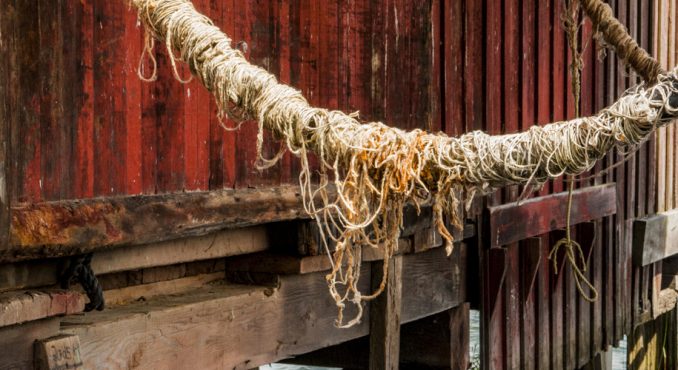
Posted by NWNL on November , 2019.
Transcription edited and condensed for clarity by Alison M. Jones.
All images © Alison M. Jones, unless otherwise noted. All rights reserved.
